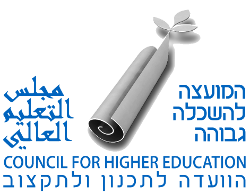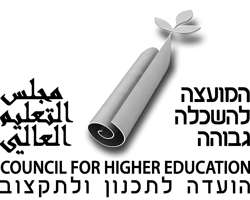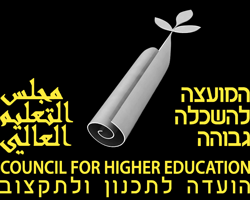Making Higher Education Accessible to Arab Society
For the First Time Ever, More Than 50,000 Arab Students
- Within a decade, a greater than 100% increase in the number of Arab students
- Bachelor’s degrees – 95% increase in the number of students
- Master’s degrees – 224% increase in the number of students
- Doctoral degrees – 118% increase in the number of students
Chairperson of the Planning and Budgeting Committee (PBC), Prof. Yaffa Zilbershats: “The revolution integrating Arab students into higher education is an unprecedented achievement for the Israeli higher education system. Students from Arab society currently excel at all Israeli educational institutions, a fact of which we are very proud. Alongside doubling the number of bachelor degree students, we are witness to impressive increases in students enrolled in advanced degree programs (more than 200% for master’s degree programs), and this is the best evidence that we have met our goal. Thanks to a comprehensive, holistic program, personal accompaniment and guidance, beginning in high school and continuing through advanced degrees, as well as a significant investment of resources, we have successfully removed barriers that have existed for decades.”
Deputy Chair of the CHE – Prof. Ido Perlman: “The higher education system is the key to integration into society in general and the Israeli market in particular. Doubling the number of Arab students, including in leading fields of study, is a revolution resulting from intense efforts on the part of the PBC and the CHE, and in turn leads to narrowing gaps and integrating them into the workforce. The CHE and the PBC will continue to expand their support of programs for integrating Arab students over the next several years as well, with emphasis being placed on the directing young people toward self-realization and toward professions for which there is market demand: Sciences, high-tech, psychology, and other fields which are underrepresented in Arab society.”
During the 2018/19 school year, for the first time, more than Arab 50,000 students were enrolled in institutions of higher education in Israel. This is a greater than 100% increase since the start of the decade. In 2008/09, there were a total of 24,377 Arab students enrolled in such institutions in Israel.
According to data for the 2008/09 academic year, the number of Arab undergraduate students that year was only 21,142, approximately 10% of the total number of undergraduates in Israel. A decade later, in 2018/19, 41,087 Arab students were studying for bachelor’s degrees in Israel, accounting for 17.7% of the total number of undergraduate students.
On the master’s degree level, the number of Arab students studying in Israel grew by 224%. In 2008/09 only 2,855 Arab students were studying for master’s degrees in Israel, representing 6% of the total number of master’s degree students. In 2018/19, the number had grown to 9,247, which it is 14.6% of the total number of master’s degree students in Israel for that year. During the same period, there was a significant increase of approximately 118%, in the number doctoral students, from 828 – 7.1% of all doctoral students in Israel in 2018/19, compared to only 380 in 2008/09.
- Multiyear View – Breakdown of Arab Students by Discipline
The increased integration of our students is a result of a comprehensive holistic program implemented by the PBC starting in high school and all the way through advanced degree studies:
As noted above, the number of students from Arab society in Israeli academia has doubled itself over the course of the last decade and is currently approximately 50,000 students. This significant increase is the result of a holistic program, broad in scope, implemented by the PBC over the last eight years. The program commences in high school by providing exposure to academia, continues by incentivizing and providing reinforcement through all stages of academia, starting with preacademic preparatory programs, through undergraduate studies, continuing with support for advanced degrees – graduate degrees, doctoral degrees, and post-doctoral degrees, and all the way through appointment of academic staff at institutions of higher learning.
The Rowad (“Gate to Academia”) Program for high school students operates in 45 regional clusters, bringing together 70 villages and towns. The program exposes young people to the available options and provides information and assistance in selecting a field of studies for students in 173 high schools catering to primarily Arab students, including support for relevant courses (e.g. preparation for the psychometric aptitude test), college tours, and a higher education fair in cooperation with local educational institutions.
There are special support programs for Arab students in pre-academic preparatory programs and those studying for bachelor’s degrees, including language enrichment in Hebrew and English, and academic, economic, and social support.
This is significant support during undergraduate studies is given primarily during the first (freshman) year as this is a year that is particularly rife with challenges and where success during this first year reduces the rate of dropouts and significantly increases the likelihood of success in obtaining the degree. Furthermore, during undergraduate studies, through financing by the PBC with the participation of the Ministry of Social Equality and the Ministry of Education, the “Irteka” scholarship (administered by PERACH) is awarded each year to 800 new students starting their freshman year during each cycle, for a total of approximately 2,250 students per year. The scholarship is granted throughout the entire degree program. The students are selected on the basis of their socioeconomic condition and enrollment in preferred fields of study in order to ensure variety in those fields of study needed in the Israeli employment market and which are underrepresented in Arab society, including in the high-tech and music fields. This variation in fields of study is done through a variety of PBC programs such as Rowad, dedicated engineering tracks in preparatory programs, as well as an achievement program for high-tech studies which brings youth from the socioeconomic periphery, including from Arab society, into the world of high tech.
Similarly, using PBC financing, dedicated career centers were established for Arab students in academic institutions, which assist in preparing for the employment market. PBC also supports excellence, and grants scholarships to outstanding students from Arab society who are studying for advanced degrees, including research master’s degrees, doctorates, and post-doctoral fellowships, as well as supporting the hiring of outstanding faculty members from Arab society.
- Ma’of Grants and Hiring Outstanding Academic Staff from the Arab Sector
From 2009/10 and until 2008/09, the PBC granted approximately 51 Ma’of grants for a total of approximately NIS 48 million to outstanding Arab academic staff members. Ma’of grants are intended for outstanding young scientists from the Arab sector. The purpose is to enable the grant’s recipients to be hired by institutions of higher education that are financed by the PBC in Israel; universities and academic colleges, in addition to existing tracks, by adding dedicated budget lines. These institutions commit to accepting grant recipients as full-time staff members at the end of the scholarship.




